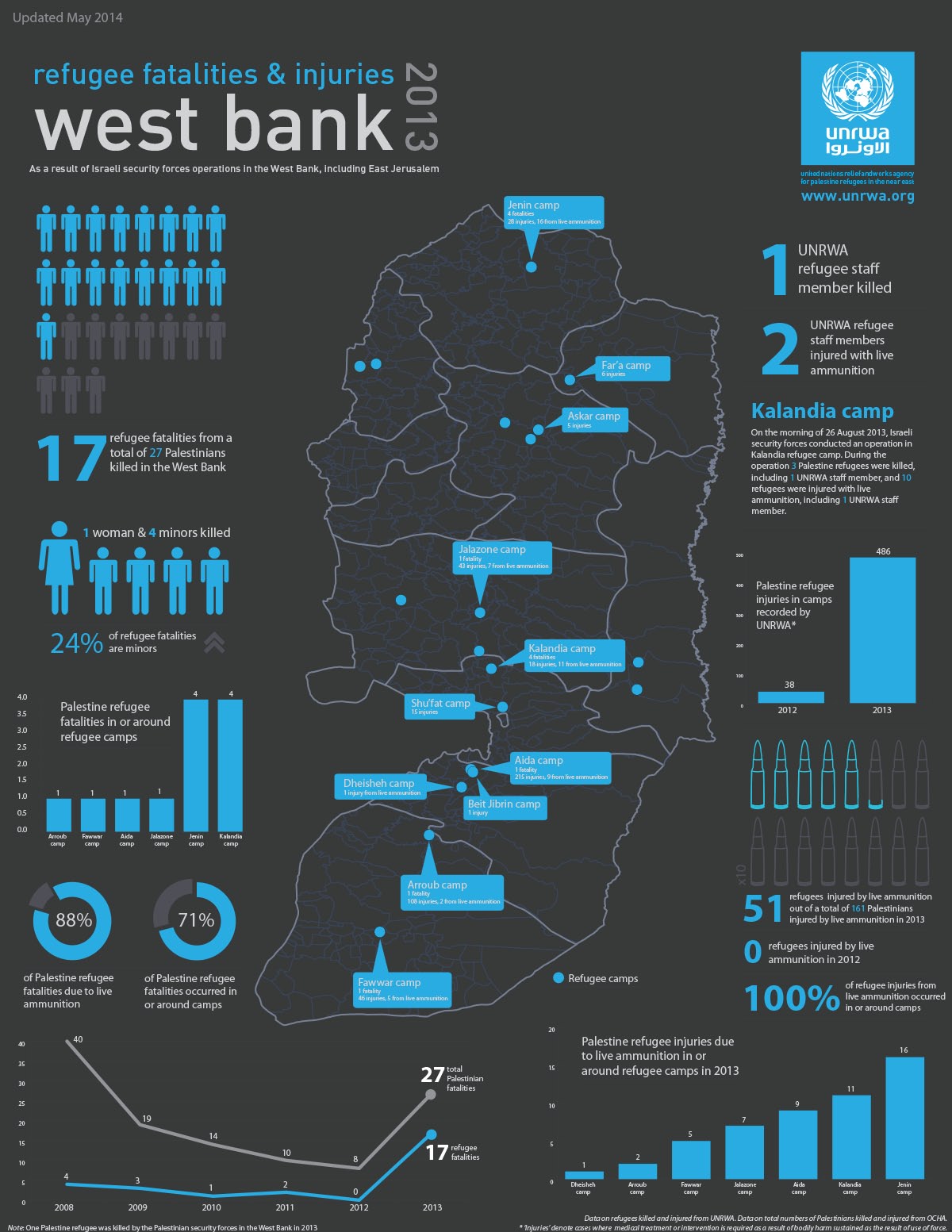Soldier’s suspension insufficient for killings of two Palestinian teens on Nakba Day
| Israeli Occupation Forces killed in cold blood teens Nadim Nurawa, 17, and Muhammad Abu Thahr, 15, on Nakba Day, May 15, 2014. |
Israeli militarly authorities have suspended a non-combat soldier for his role in killing two Palestinian teenagers near Ramallah on Nakba Day, May 15, 2014, according to published media reports.
Some say the punishment is insignificant for those who shot dead Muhammad Abu Thahr, 15, and Nadim Nuwara, 17, while they were walking along a road. The shootings took place with no provocation, according to CNN, which caught the murders on video. Nurawa was shot through the chest, while soldiers shot Thahr in the back.
Nurawa was wearing his school backpack when he was shot and the live bullet lodged in a bloody textbook inside, completely refuting Israel’s initial assertion its occupation soldiers used only rubber bullets. At any rate, rubber bullets are not safe and often are misused by soldiers to maximimize injury or to even cause death, according to the Israeli newspaper, Haaretz. Israeli Occupation Forces have killed 21 Palestinians with rubber bullets since September 2000, according to Israeli human rights NGO, B'Tselem.
“At the exact moment when Nurawa was shot, CNN’s camera was rolling, filming an Israeli soldier shooting his rifle at the Palestinians and then the demonstrators carrying the mortally wounded teenager to the ambulance,” said Ivan Watson, reporting for CNN.
The killings came amid a new report by the United Nations Relief and Works Agency, which notes the ‘increase in killings’ of Palestinian since 2012. Israeli Occupation Forces killing of Palestinian refugees in the West Bank increased 88 percent in 2013 over 2012. And the trend is continuing this year. (Please see infographic below).
Additionally, the European Union issued a report in March expressing grave concern over the increase in IOF attacks on Palestinian worshippers at Al Aqsa, saying for the first time the attacks are spilling over into the Muslim quarter in the Old City of Jerusalem. The report also warns the Israeli attacks could be a prelude to the partition of Al Aqsa, where a portion would be given to Jewish worshipers, similar to what occurred in 1994 with the Ibrahimi mosque in Hebron.
Infographic: UNRWA



